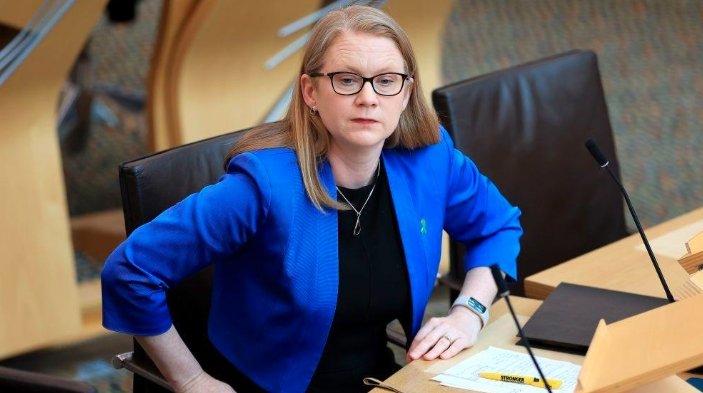A political storm is brewing between Holyrood and Westminster after a dramatic U-turn on winter fuel payments by the UK government left Scottish ministers scrambling to assess its impact — and potentially forced to revisit their own devolved policy.
Social Justice Secretary Shirley-Anne Somerville said Scottish ministers were not consulted on the announcement by new Chancellor Rachel Reeves, which will restore annual payments of up to £300 for pensioner households in England and Wales — a reversal of an earlier Labour cost-cutting plan that sparked heavy backlash.
Now, there are growing fears that Scottish pensioners — particularly those with modest incomes who don’t receive Pension Credit — could be £100 worse off this winter compared to their southern neighbours.
A Benefit Divide?
The Scottish Government had already rolled out its own universal £100 Winter Heating Payment for all pensioner households, with £200 or £300 payments reserved for those eligible for Pension Credit.
But Westminster’s unexpected U-turn could now create a striking disparity. In England and Wales, more than 75% of pensioner households will be eligible for the full restored payment. That includes those with income levels up to £35,000 — even if they don’t qualify for means-tested benefits.
In contrast, in Scotland:
-
All 751,000 pensioner households will receive £100
-
But only the 17% of those on Pension Credit will receive a higher amount
-
Those with incomes below £35,000 but above the Pension Credit threshold will miss out on the £200–£300 available elsewhere in the UK
This has sparked growing political pressure on the SNP-led Scottish government to match the payments — or face accusations of short-changing Scottish pensioners.

Shirley-Anne Somerville: ‘Still no detail’
Speaking on Monday, Somerville expressed anger over the lack of consultation.
“We have once again not been consulted on the policy and its implications in Scotland,” she said.
“We welcome the U-turn, but there is still no detail about how the Chancellor intends to go about that.”
She called on the Treasury to urgently provide clarity and ensure Holyrood is fully informed of its plans.
While Westminster says £250 million in extra funding will be allocated to Scotland through the Barnett formula, the Scottish government has not yet confirmed whether it will use that to enhance the winter payment.
Political backlash and calls to act
Scottish Labour has seized on the confusion to pile pressure on the SNP.
“The SNP must not go ahead with plans that would rob poorer pensioners in order to fund payments for millionaires,” said Labour MSP Paul O’Kane.
He urged ministers to re-examine their policy, guarantee that no pensioner is left out of pocket, and prioritise those most in need.
Meanwhile, campaigners and pensioners themselves are demanding fairness.
Peter and Flo Fanning from Coatbridge — who had previously taken both governments to court over the original winter payment cuts — said they felt vindicated by Westminster’s reversal.
“There was possibly a thought from Westminster that pensioners would just roll over,” said Mr Fanning. “But we’re a force to be reckoned with.”
He warned that penalising pensioners who had saved or earned modest works pensions sent the wrong message.
“What are they saying? Don’t save for your future?”
What next for Scotland’s policy?
BBC Scotland political correspondent David Wallace Lockhart says the Scottish Government is now facing a tough decision.
-
Keep the £100 universal payment — and risk backlash for failing to keep pace with England and Wales
-
Or increase the payment using the additional £250m in Barnett consequentials
It’s not a straightforward dilemma. The Scottish scheme is universal — praised for its simplicity and fairness. But that also means millionaires receive the same support as pensioners living near the poverty line.
If Holyrood now targets the payment more narrowly, as Labour suggests, it risks accusations of introducing means-testing where none existed. If it maintains the universal flat rate, many on modest incomes will lose out.
A larger political test
This isn’t just a policy headache — it’s a test of devolution dynamics, intergovernmental communication, and public trust.
Scotland has more than 1.1 million pensioners, many of whom closely watch how Holyrood and Westminster handle cost-of-living support.
And for some, this moment feels like déjà vu: two governments at odds, policy confusion, and the most vulnerable caught in the crossfire.
For pensioners like the Fannings, the fight was never about politics — it was about dignity.
“Once that payment is out,” said Mr Fanning, “I’ll be very happy.”


















